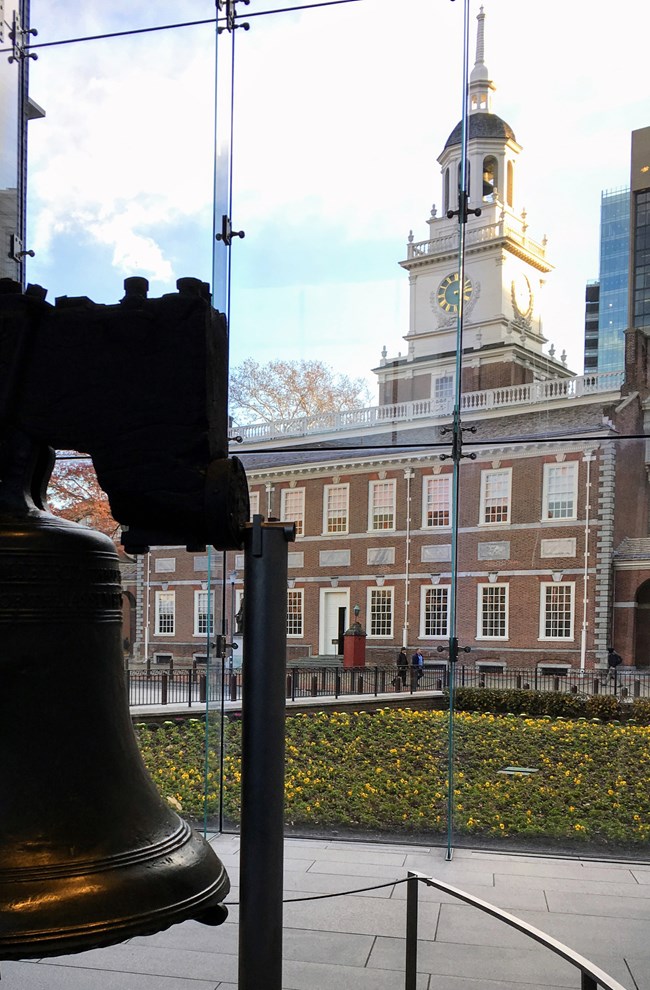Last updated: October 12, 2023
Article
Philadelphia's Heritage of LGBTQ Activism

Philadelphia's history of protest and activism is exceptional. From American colonists declaring independence from Great Britain, to abolitionists fighting against slavery, to women's suffragists demanding voting rights, to civil rights activists calling for equality, the city has a deep history of social and political conflict and engagement.
In the future, the Philadelphia LGBTQ Heritage Initiative will offer more detailed histories. In the meantime, here is a brief overview.
Philadelphia's Lesbian, Gay, Bisexual, Transgender and Queer (LGBTQ) history follows this rich tradition of protest and action. A few highlights include:
Reminder Days
These were held annually at Independence Hall on July 4 from 1965 through 1969. Protesters gathered in front of Independence Hall to demand the public take notice of the discrimination that gay and lesbian American citizens endured -- that not all Americans enjoyed the rights of "life, liberty, and the pursuit of happiness" enshrined in the Declaration of Independence. These protests were organized by an alliance of homophile organizations, including the New York City and Washington, DC Mattachine Societies, the Janus Society of Philadelphia, and New York City's Daughters of Bilitis. As a collective, they were known as the East Coast Homophile Organizations (ECHO). Organizers insisted on a strict dress code for participants, including jackets and ties for men and dresses for women; the goal was to present gays and lesbians as both "presentable" and "employable." Veteran activists at the first Annual Reminder included Frank Kameny, Barbara Gittings, and Kay Tobin.
The Annual Reminders helped move gay and lesbian civil rights into the public consciousness and helped provide structure and organization for the ongoing LGBTQ Civil Rights movement. After the Stonewall Uprising in June of 1969, the organizers of the Annual Reminders discontinued the annual pickets. Instead, they focused their attention to the Christopher Street Liberation Day held on June 28, 1970 to commemorate the anniversary of the Stonewall Uprising. Since then, June is traditionally the month of LGBTQ Pride celebrations.
Dewey's Sit-in
On April 25, 1965, a large number of black and white lesbian, transgender, and gay people took part in a Sit-In at Dewey's. The protest was a response to the restaurant denying service to "homosexuals and persons wearing non-conformist clothing." Police arrested three people refusing to leave the diner and over the next week a leaflet campaign and a second sit-in was staged.
St. Mary's Church of Hamilton Village
When there were few meeting spaces outside of bars for lesbians to congregate, St. Mary's Church of Hamilton Village offered dances and a safe space for women to socialize.
Giovanni's Room
One of the oldest surviving LGBT bookstores in the nation. Opened in the early 1970s, Giovanni's room became a space where people could learn both about gay and lesbian culture and learn about themselves. The bookstore provided a support network and during the AIDS epidemic provided information about how to care for people with the disease.
From sit-ins at Dewey's, drawing attention to non-gender conforming discrimination, to Sisters, a lesbian bar on Chancellor Street, to Giovanni's Room, one of the country's first LGBTQ bookstores, Philadelphia has a rich and diverse history.
Both the extraordinary events and daily lives of people in Philadelphia have helped shape modern LGBTQ history. Today, few places in Philadelphia are recognized or preserved for their LGBTQ history and contributions to American life and culture.
